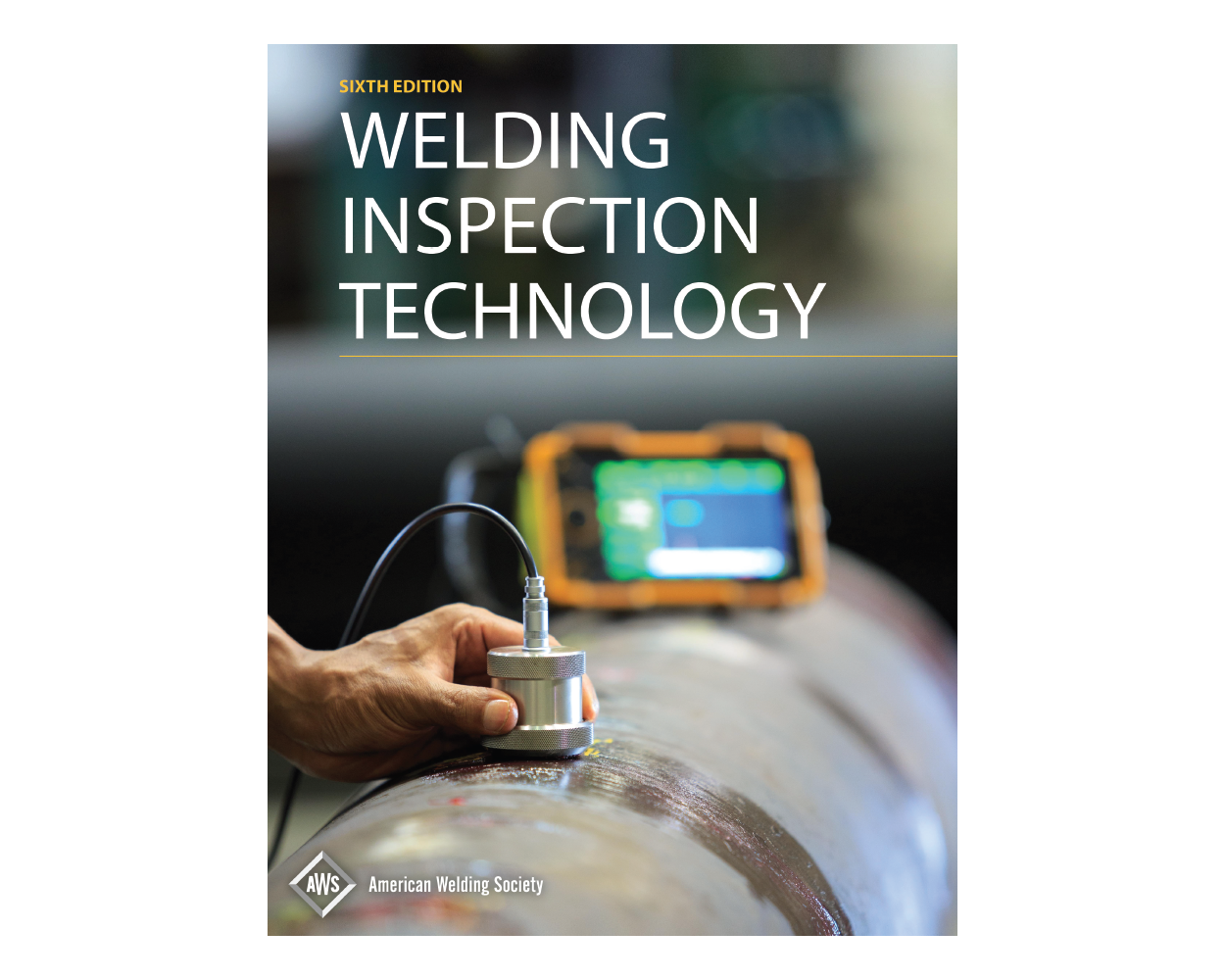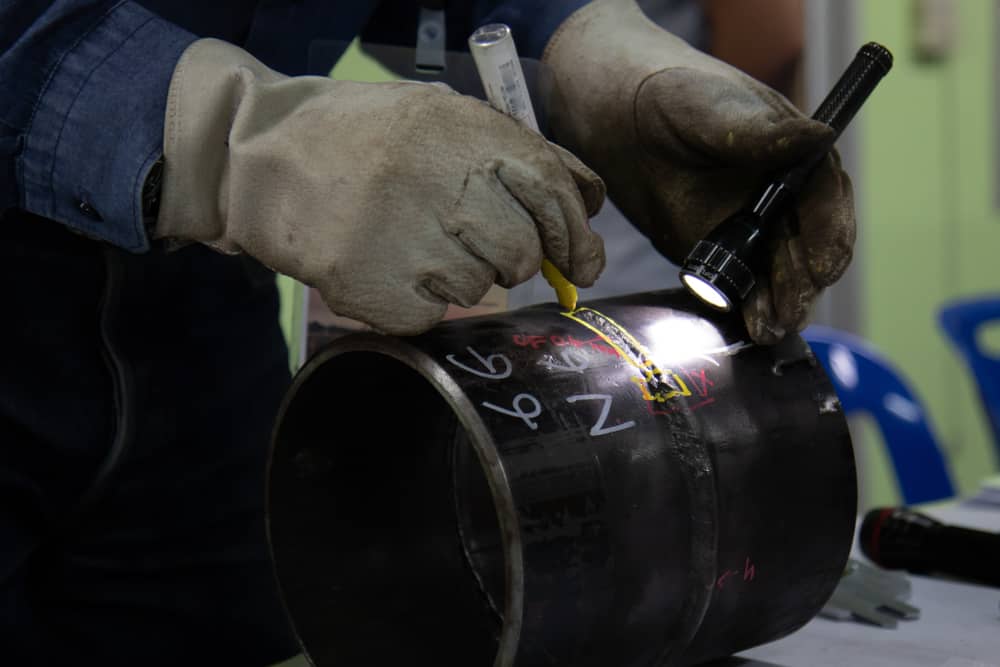Expert Welding Inspection Services in Gilbert Arizona: What You Required to Know
Expert Welding Inspection Services in Gilbert Arizona: What You Required to Know
Blog Article
The Impact of Extensive Welding Assessment on Industry Criteria: Promoting Safety And Security, Reliability, and Conformity Throughout Various Fields
The role of extensive welding examination is progressively recognized as a vital component in boosting sector requirements, where conformity, security, and reliability take precedence throughout varied fields. What transformations might we anticipate in welding techniques as the need for top quality and security heightens?
Value of Welding Assessments
Recognizing the critical duty of welding examinations in preserving top quality and security standards, industry experts focus on these examinations to guarantee structural stability. Welding inspections function as an important checkpoint in the manufacture process, determining issues that might endanger the sturdiness and safety and security of bonded structures. By methodically assessing welds, assessors can discover problems such as insufficient infiltration, porosity, and cracks, which might not show up to the naked eye.
The value of these evaluations extends beyond simple conformity; they are crucial for protecting lives and securing investments. In essential sectors such as aerospace, building, and production, a solitary damaged weld can bring about catastrophic failures, causing both economic loss and human casualties. Consequently, implementing extensive assessment methods reduces these risks and enhances general job dependability.
Additionally, consistent welding examinations promote a society of top quality throughout organizations, encouraging welders to comply with best practices and keep high requirements in their job. This dedication to high quality not only boosts operational efficiency yet likewise reinforces the online reputation of firms within their particular sectors. Thus, welding inspections are essential in promoting safety and security, reliability, and conformity throughout various sectors.
Secret Market Standards and Laws
The structure of welding evaluations is underpinned by a durable set of sector requirements and regulations that control practices throughout different sectors. Secret institutions, such as the American Welding Society (AWS) and the International Organization for Standardization (ISO), establish standards that guarantee high quality and safety and security in welding procedures. AWS D1.1 lays out vital needs for welding steel structures, while ISO 3834 defines high quality needs for blend welding.
Along with these certain standards, industry regulations like the American National Requirement Institute (ANSI) and Occupational Security and Health And Wellness Management (OSHA) requireds further boost conformity by establishing safety and security protocols and operational finest methods. These guidelines are essential in industries such as manufacturing, aerospace, and building, where welding honesty is extremely important.
Furthermore, sector-specific requirements, such as those from the American Society of Mechanical Engineers (ASME) for stress vessels, provide additional layers of scrutiny to ensure that welds fulfill strict safety and performance standards. Adherence to these requirements not just facilitates governing compliance but likewise promotes a culture of quality and integrity throughout the welding sector, eventually protecting public well-being and enhancing functional effectiveness.

Benefits of Compliance and Integrity
Constantly sticking to market standards and laws in welding assessments yields substantial advantages, improving overall dependability and efficiency. The leading advantage is the guarantee of high quality in welded joints, which straight contributes to the safety and security of structures and equipment. Compliance with well established requirements minimizes the danger of failure and catastrophic occurrences, thus shielding both human life and valuable assets.
In addition, organizations that focus on strenuous welding inspections promote a society of responsibility and professionalism. This dedication not only boosts the reputation of the business but likewise infuses confidence in clients and stakeholders concerning the honesty of items and services. Reliable welding processes lead to lowered costs connected with rework, repair services, and possible legal liabilities coming from subpar craftsmanship.
Furthermore, keeping compliance with market criteria promotes smoother governing interactions, as companies can conveniently show adherence to necessary procedures (Welding Inspection Gilbert Arizona). This aggressive approach can lead to useful collaborations and possibilities within the market, as well as access to brand-new markets
Obstacles in Welding Assessment
Browsing the complexities of welding examination provides a myriad of challenges click here for info that can prevent compliance with sector standards. The absence of standardized training for assessors can result in different analyses of evaluation criteria, which might compromise security and dependability.
An additional obstacle lies in the access of innovative examination devices - Welding Inspection Gilbert Arizona. While modern technologies such as ultrasonic testing and radiography can improve discovery abilities, their implementation may be restricted by cost or schedule, especially in smaller sized operations. This variation can bring about a dependence on much less effective assessment approaches, boosting the risk of unnoticed flaws
Additionally, the busy nature of modern manufacturing usually pressures examiners to focus on speed over thoroughness, potentially ignoring essential problems. Regulatory compliance can be daunting due to the evolving nature of industry standards, leaving organizations having a hard time to maintain up with the most recent needs. These obstacles demand continuous improvement in evaluation methods to guarantee the integrity of welded structures across different sectors.
Future Trends in Welding Practices
Emerging technologies and evolving techniques are set to transform welding practices in the coming years. Developments in automation, such as robotic welding systems, are acquiring traction, enhancing precision and performance while decreasing human error. These systems you can find out more will certainly not just accelerate production yet additionally promote regular quality assurance, addressing some of the obstacles dealt with in hands-on welding.
Additionally, the integration of artificial knowledge (AI) and maker knowing right into welding processes is poised to revolutionize assessment and monitoring. Real-time data analytics will certainly enable anticipating upkeep, enabling for proactive interventions that decrease downtime and increase safety and security. Furthermore, augmented fact (AR) and digital reality (VIRTUAL REALITY) innovations are becoming instrumental in training welders, supplying immersive experiences that enhance ability development without the threats connected with traditional approaches.
Sustainability is likewise a key fad, as industries look for greener techniques. The adoption of environmentally friendly products and approaches, alongside energy-efficient machinery, will likely become standard. As markets adjust to these adjustments, the emphasis will certainly change toward greater conformity with safety and ecological regulations, guaranteeing that welding practices not just satisfy current requirements yet additionally lead the way for a more secure and even more lasting future.

Final Thought
In final thought, extensive welding inspections considerably boost market requirements by ensuring security, dependability, and compliance across various sectors. As sectors proceed to prioritize operational use this link honesty, the relevance of detailed examinations will only enhance, ultimately profiting companies and culture at big.
The role of extensive welding examination is increasingly identified as a crucial part in boosting market requirements, where safety, integrity, and compliance take priority throughout diverse sectors. Therefore, welding inspections are crucial in promoting safety and security, reliability, and conformity throughout different sectors.
Trick institutions, such as the American Welding Culture (AWS) and the International Organization for Standardization (ISO), develop guidelines that make certain quality and safety and security in welding operations. AWS D1.1 outlines crucial demands for welding steel frameworks, while ISO 3834 defines high quality requirements for fusion welding.
In final thought, strenuous welding evaluations considerably boost sector standards by guaranteeing safety and security, reliability, and compliance throughout numerous fields.
Report this page